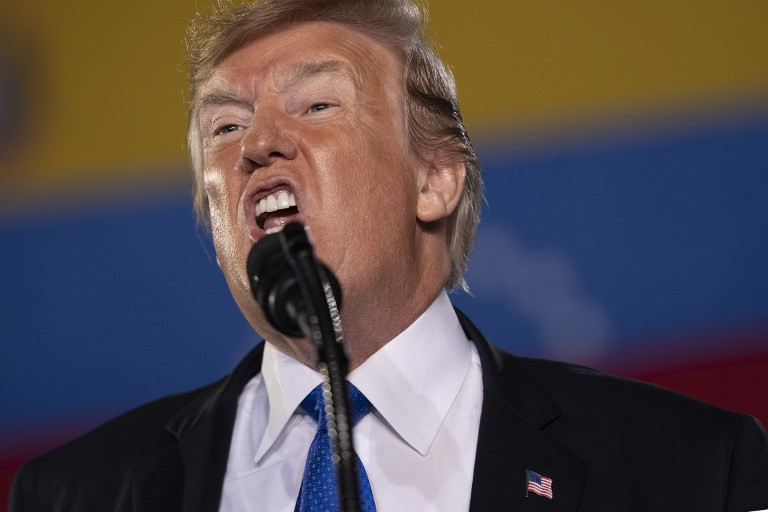Chinese stocks tumbled along with the yuan as a pair of tweets by President Donald Trump undermined confidence in a trade agreement.
The ChiNext Index of technology companies and small caps dropped the most since February 2016 as trading on mainland markets resumed after last week’s holiday. The yuan also weakened the most in three years and bonds climbed. People familiar with the matter said China is preparing to stabilize the equity market if needed, while at least one large bank offered to sell the dollar as the yuan fell, according to traders. China is also said to be considering delaying a trip by its top trade negotiators to Washington after Trump’s threat of steeper tariffs.
The news “distracts the market’s focus from a nascent economic recovery to short term volatility. Risk assets will be under pressure for now,” said Hao Hong, chief strategist at Bocom International Holdings. “Because both parties want a deal, I continue to believe that the long-term uptrend trumps short-term volatility.”
If Chinese equities see significant selling pressure, authorities are likely to intervene to support the market, Hong said.
Optimism that China and the US would reach a deal on trade helped make Shanghai equities the hottest in the world this year, although lackluster corporate earnings and concern Beijing is easing back on stimulus dragged the Shanghai Composite Index down nearly 6 percent from its April high before Monday. The benchmark has failed to hold above a number of key support levels as popular trades unraveled.
The offshore yuan fell as much as 1.3 percent to 6.8218 per dollar, its lowest since Jan. 10, before trading at 6.7968 as of 1:34 p.m. Hong Kong time. The onshore rate slid 0.69 percent to 6.7820 per dollar.
“Investors will remain bearish on the yuan, as they reprice in trade war risks because the new developments are a reversal of previous positive progress,” said Ken Cheung, a senior foreign-exchange strategist at Mizuho Bank in Hong Kong. “The news was unexpected. Stop-loss orders will push the yuan even lower.”
Trump previously delayed increasing tariffs on $200 billion in goods to 25 percent from 10 percent after agreeing to a Dec. 1 truce with Chinese President Xi Jinping to give negotiators time to work out a comprehensive agreement.
“The Trade Deal with China continues, but too slowly, as they attempt to renegotiate,” Trump wrote in a tweet on Sunday. “No!”
Trade-war proxy stocks tumbled Monday, with ZTE down as much as 13 percent in Hong Kong and pork producer WH Group falling 12 percent. Exporters including Lens Technology and Luxshare Precision Industry both declined by the 10 percent daily limit in Shenzhen, while airlines and port developers also dropped. Gold producers rose as investors sought haven stocks.
The Hang Seng China Enterprises Index slid 3.1 percent in Hong Kong, while the Shanghai Composite Index retreated 5.5 percent. The CSI 300 Index sank as much as 6.3 percent, heading for its biggest loss since early 2016. The ChiNext plunged 7.5 percent. Foreign investors sold onshore equities, offloading net 7.6 billion yuan ($1.1 billion) through trading links.
News that China’s central bank will lower the reserve requirement ratio for mid- and small-sized banks focusing on local economies, effective May 15, had a limited impact on markets.










